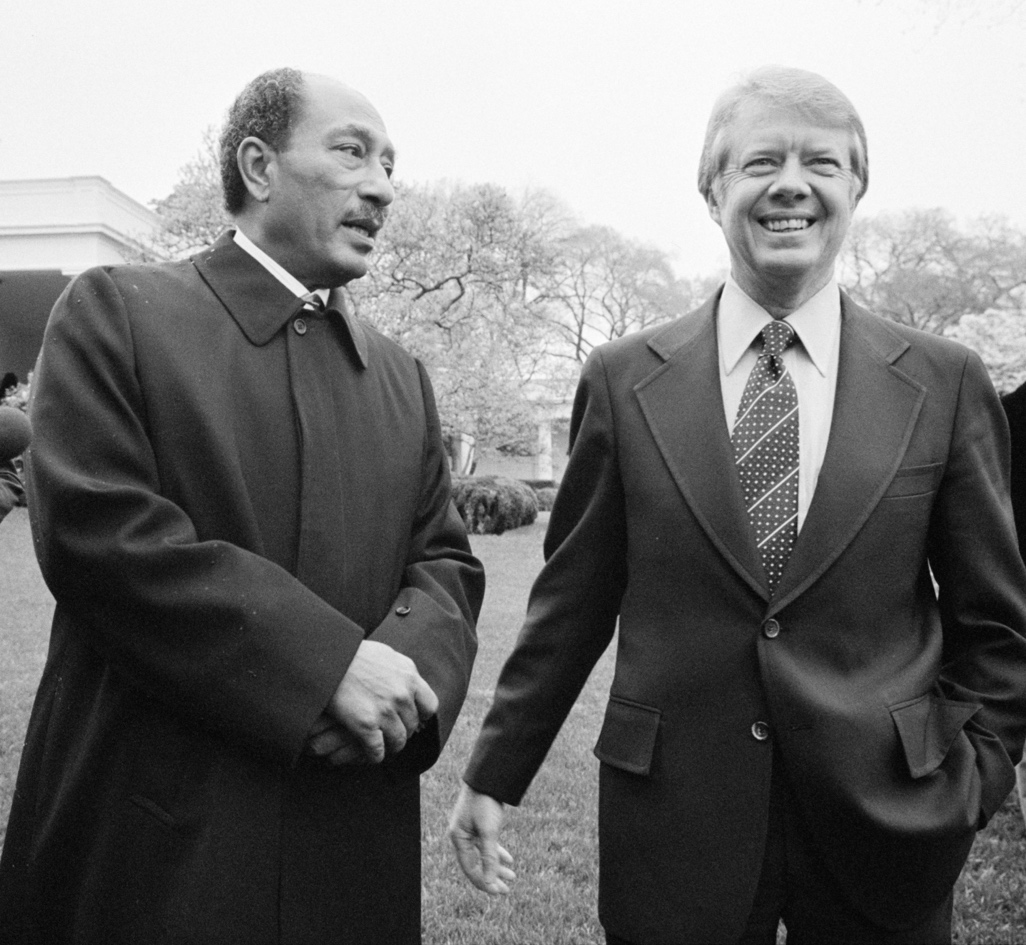January 1, 1978

President Carter made an unscheduled stop in Aswan to confer with President Sadat, ten days before the beginning of the talks of the Israel-Egypt Political Committee. At the end of their talks, they made statements to the press, extracts of which follow, in which they reiterated their positions. Mr. Carter said that the U.S. supports true peace based on normal relations, withdrawal of Israel to secure and recognized borders and a resolution of the Palestinian problem. The problem must recognize the legitimate rights of the Palestinian people and enable them to participate in the determination of their own future. This became known as the Aswan formula. Israeli leaders felt that they could “live with” this formula.
Carter:
President Sadat, People of Egypt, it is an honour and a pleasure for us to be in this great country led by such a strong and courageous man. Mr. President, your bold initiative in seeking peace has aroused the admiration of the entire world. One of my most valued possessions is the warm and personal relationship that binds me and President Sadat together and which exemplifies the friendship and the common purpose of the People of Egypt and the People of the United States of America.
The Egyptian-Israeli peace initiative must succeed. While still guarding the sacred and historic principles held by the nations that have suffered so much in this region, there’s no good reason why accommodation cannot be reached. In my own private discussions with both Arab and Israeli leaders I have been deeply impressed by the unanimous desire for peace. My presence here today is a direct result of the courageous initiative which President Sadat undertook in his recent trip to Jerusalem. The negotiating process will continue in the near future.
“We fully support this effort and we intend to play an active role in the work of the political committee of Cairo which will soon reconvene in Jerusalem. We believe that there are certain principles, fundamentally, which must be observed before a just and a comprehensive peace can be achieved.
First, true peace must be based on normal relations among the parties to the peace. Peace means more than just an end to belligerency.
Second, there must be withdrawal by Israel from territories occupied in 1967 and agreement on secure and recognized borders for all parties in the context of normal and peaceful relations in accordance with United Nations Resolutions 242 and 338.
And third, there must be a resolution of the Palestinian problem in all its aspects. The problem must recognize the legitimate rights of the Palestinian people and enable the Palestinians to participate in the determination of their own future.
Some flexibility is always needed to ensure successful negotiations and the resolution of conflicting views. We know that the mark of greatness among leaders is to consider carefully the views of others and the greater benefit that can result among the people of all nations which can count on a successful search for peace.
Sadat:
We had very intensive and fruitful talks upon the whole arena, in particular the conflict here in the Middle East and the whole international position and our bilateral relations. I’m very happy to say that our views were identical and we have agreed upon certain steps to keep the momentum of the peace process. All I ask is let us have in a very short time the opportunity to welcome President Carter and to show him the gratitude of my people and myself. In the same time may I say that in the peace process we welcome all the parties concerned… They are welcome whenever they find it convenient to them because this time as I have already repeated before, we are heading toward peace and real peace in the area… permanent peace… thank you.
